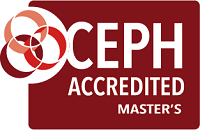Tips for A Successful Practicum
What Should I Know About an M.P.H. Practicum?
By Marcella Gonsalves, EdD, MPH - Lecturer and Practicum Program Coordinator
 Marcella Gonsalves, EdD, MPH
Marcella Gonsalves, EdD, MPH
If you are thinking about getting a Master's of Public Health or have already started, you may need to start thinking about a practicum. Some M.P.H. programs, like UC Davis’ M.P.H. program, require students to complete a practical, applied experience working on a public health project. This is an awesome opportunity to gain real-world experience, increase your professional network and perhaps explore some areas of public health not covered in the M.P.H. curriculum.
So how can you be successful during a practicum? As someone who not only has completed a final M.P.H. project but also supervised many practicum student projects in a variety of capacities, I can tell you there are some reliable strategies to help you be successful in your practicum.
Here are my top three tips for having a successful practicum:
Tip #1
Be transparent about what you want
Need help with paying for parking near the practicum? Want to find out if you can work some days remotely? Want to work on a particular issue and develop a policy brief? Be sure to ask what’s possible.
Students sometimes are hesitant to ask for specific things they want during an interview with a supervisor. Then both the students and practicum supervisors walk away from the interview with different impressions about what the practicum should entail.
If you know you have particular interests or needs for your practicum, be sure to ask about them during the interview or initial meeting. You might be surprised about what’s possible.
Tip #2
Don't worry about "bugging" your supervisor
Great! You’ve landed the perfect practicum and started working in an office. Now you have a ton of questions, and your supervisor seems like she is always busy.
Students can sometimes be hesitant to walk into a supervisor’s office or call a supervisor on the phone to try to get their questions answered. They think that they are “bugging” a supervisor, so they send an email and wait and wait. They then sometimes have troubles meeting deadlines, or a project ends up being different from what the supervisor wanted.
What students forget is that they are usually on a limited timeline and their supervisors committed to working with them. Supervisors are just usually super busy.
In the professional world, you are not “bugging” your supervisor if you try to walk into her office or you call her on the phone to try to get your question answered. You can always ask “is now a good time?” to give your supervisor an opportunity to schedule a better time. If you have a lot of questions, you may want to schedule a time with your supervisor so that you don’t have to ask repeatedly.
Better yet, I recommend trying to set up a weekly meeting to ensure that you two connect to get your questions answered, update your supervisor about progress, and your project can move forward as planned.
Tip #3
Stand by the watercooler
Your practicum is an awesome time to learn something new and apply what you learned in the classroom. It’s also the perfect time to network with professionals and get to know people beyond your project team. This could lead to future job offers, collaborations on projects or even job referrals down the road.
My suggestion? Find a place like a watercooler or a breakroom where employees congregate and introduce yourself! You may even want to ask if you could schedule quick in-person meetings with them to learn more about their work. People love to talk about their work and most likely will be flattered you asked.
Are you not working in an office? Ask your supervisor if there are any opportunities to meet other employees or collaborators. Perhaps there are some upcoming collaboration meetings or webinars you could join. Then follow up by asking for a brief phone call or Skype meeting to learn more about the people at the meeting.
While negotiating a practicum, being proactive in your communication and networking are all important strategies, most importantly, try to enjoy the ride! Your M.P.H. and practicum will most likely be stepping stones to a great career in public health. Soak it up and get ready to join an amazing group of professionals who are changing the world every day!




